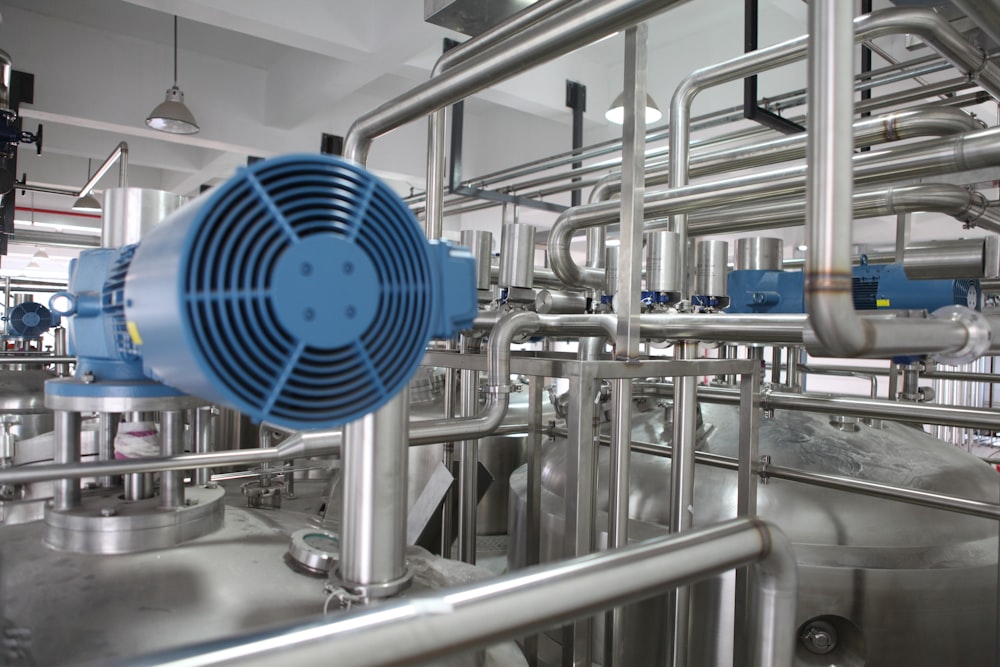
Mastering Efficiency Industrial Process Control Systems
Navigating Efficiency: Unleashing the Power of Industrial Process Control Systems
In the intricate world of industrial operations, the key to seamless efficiency lies in mastering the art of process control. This article delves into the transformative realm of industrial process control systems, shedding light on their significance and exploring how businesses can harness their power for enhanced productivity.
The Foundation: Understanding Industrial Process Control Systems
At the heart of efficient industrial processes are sophisticated control systems that orchestrate operations. These systems, often automated and interconnected, regulate variables such as temperature, pressure, and flow to ensure precision and consistency in production. Understanding the fundamentals of industrial process control systems is the first step towards unlocking their full potential.
Precision in Action: Automation and Control Loops
Automation is the linchpin of modern industrial processes, and control loops are the architects of precision. These loops continuously monitor and adjust parameters to maintain desired conditions. Whether it’s a temperature control loop in a chemical plant or a pressure control loop in a manufacturing facility, these systems optimize processes with unparalleled accuracy.
Holistic Integration: The Role of Supervisory Control and Data Acquisition (SCADA)
Supervisory Control and Data Acquisition (SCADA) systems act as the nerve center of industrial process control. They provide a centralized platform for monitoring, gathering real-time data, and even controlling processes remotely. SCADA integration brings a holistic view of operations, allowing for informed decision-making and proactive control adjustments.
Real-Time Insights: The Power of Data Analytics
In the era of data-driven decision-making, industrial process control systems offer a wealth of information. Data analytics tools integrated into these systems enable real-time insights into production trends, potential bottlenecks, and areas for optimization. Businesses that leverage this data can make informed decisions for continuous improvement.
Exploring Innovation: Advanced Process Control (APC) Systems
For those seeking to push the boundaries of efficiency, Advanced Process Control (APC) systems come into play. These sophisticated systems go beyond traditional control methods, utilizing mathematical models and algorithms to optimize complex processes. APC systems are at the forefront of innovation, offering enhanced control and adaptability.
Enhanced Connectivity: Internet of Things (IoT) Integration
In the ever-evolving landscape of industrial technology, the Internet of Things (IoT) has emerged as a game-changer for process control. IoT integration allows for the connection of devices and sensors, facilitating seamless communication between different elements of the industrial ecosystem. This connectivity enhances control and opens avenues for predictive maintenance and adaptive processes.
Securing Operations: Industrial Cybersecurity Measures
As industrial processes become more interconnected, the need for robust cybersecurity measures is paramount. Industrial process control systems, often part of a networked infrastructure, require safeguards to protect against cyber threats. Implementing cybersecurity protocols ensures the integrity and reliability of control systems, safeguarding critical operations.
Reliability Through Redundancy: Fail-Safe Mechanisms
In the realm of industrial processes, reliability is non-negotiable. To ensure uninterrupted operations, industrial process control systems often incorporate fail-safe mechanisms. Redundancy in critical components and automated failover systems minimize the risk of disruptions, contributing to the overall reliability of industrial processes.
Unlocking







